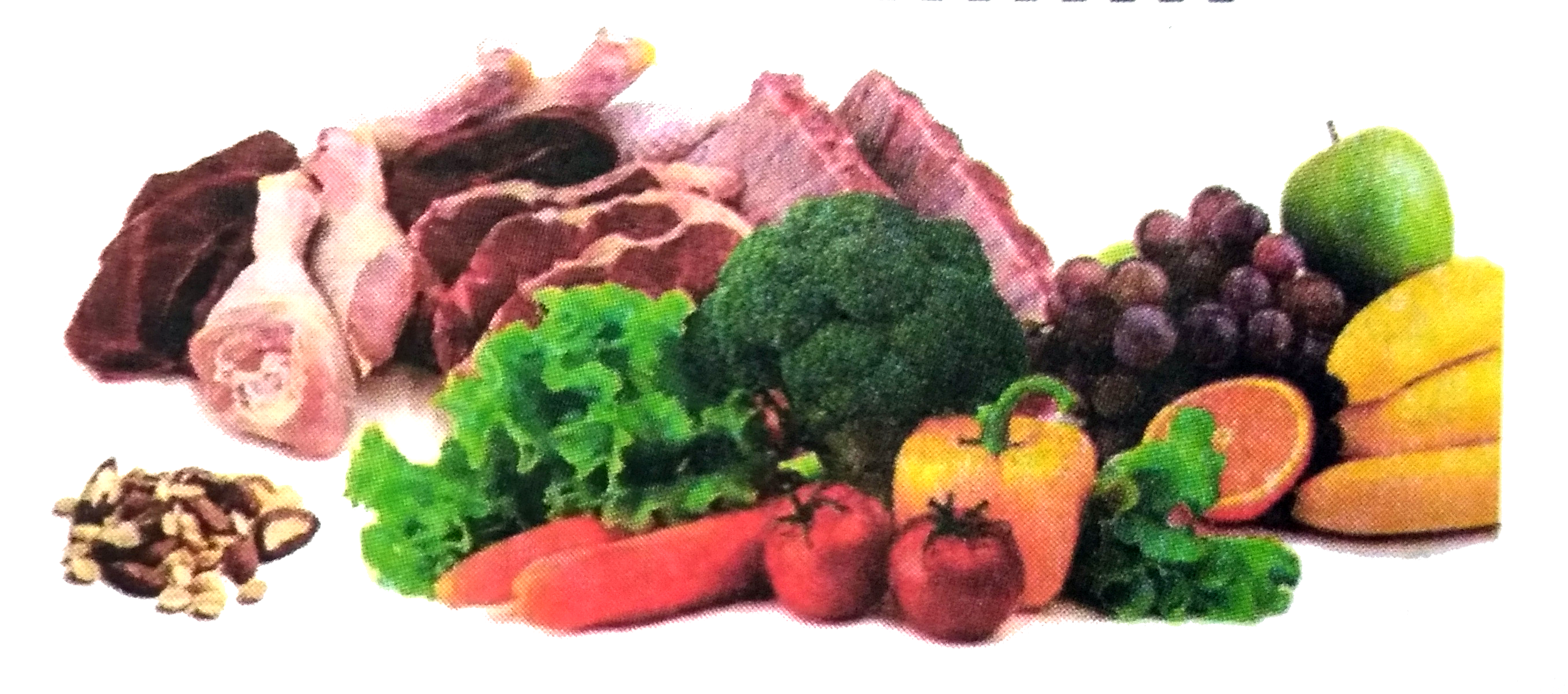Carbohydrates in food
Step-by-Step Text Solution:
1. Definition of Carbohydrates:
Carbohydrates are organic compounds made up of carbon, hydrogen, and oxygen. They are one of the main macronutrients that provide energy to the body.
2. Role of Carbohydrates in the Body:
- Carbohydrates serve as the primary source of energy for the body.
- They are crucial for the functioning of vital organs such as the brain, heart, muscles, and kidneys.
- They also play a significant role in the nervous system, supporting its functions.
3. Energy Storage:
- Carbohydrates are stored in the body in the form of glycogen, which is primarily found in the liver and muscles.
- When the body needs energy, glycogen can be converted back into glucose.
4. Sources of Carbohydrates:
- Common sources of carbohydrates include:
- Starchy foods like potatoes, wheat, and rice.
- Sugary foods such as candies and sweets.
- Fruits, which are naturally rich in carbohydrates, especially in the form of sugars like glucose.
5. Importance in Metabolism:
- Carbohydrates assist in lipid metabolism, which is the process of breaking down fats for energy.
- They help in the overall metabolic processes in the body.
Carbohydrates are organic compounds made up of carbon, hydrogen, and oxygen. They are one of the main macronutrients that provide energy to the body.
- Carbohydrates serve as the primary source of energy for the body.
- They are crucial for the functioning of vital organs such as the brain, heart, muscles, and kidneys.
- They also play a significant role in the nervous system, supporting its functions.
- Carbohydrates are stored in the body in the form of glycogen, which is primarily found in the liver and muscles.
- When the body needs energy, glycogen can be converted back into glucose.
- Common sources of carbohydrates include:
- Starchy foods like potatoes, wheat, and rice.
- Sugary foods such as candies and sweets.
- Fruits, which are naturally rich in carbohydrates, especially in the form of sugars like glucose.
- Carbohydrates assist in lipid metabolism, which is the process of breaking down fats for energy.
- They help in the overall metabolic processes in the body.
Topper's Solved these Questions
- NUTRITION IN PLANTS AND ANIMALSBOOK - BETOPPERSCHAPTER - NUTRITION IN PLANTS AND ANIMALSEXERCISE - SUMMATIVE WORKSHEET (ANSWER THE FOLLOWING)
23 Videos
- NUTRITION IN PLANTS AND ANIMALSBOOK - BETOPPERSCHAPTER - NUTRITION IN PLANTS AND ANIMALSEXERCISE - SUMMATIVE WORKSHEET (MATCH THE FOLLOWING)
3 Videos
- NUTRITION IN PLANTS AND ANIMALSBOOK - BETOPPERSCHAPTER - NUTRITION IN PLANTS AND ANIMALSEXERCISE - SUMMATIVE WORKSHEET (NAME THE FOLLOWING )
17 Videos
- MOVEMENT IN ANIMALS AND PLANTSBOOK - BETOPPERSCHAPTER - MOVEMENT IN ANIMALS AND PLANTSEXERCISE - SUMMATIVE WORKSHEET (ANSWER THE FOLLOWING )
13 Videos
- ORGANISATION IN THE LIVING THINGSBOOK - BETOPPERSCHAPTER - ORGANISATION IN THE LIVING THINGSEXERCISE - Summative Worksheet (VIII. The organs of various systems are listed in the first column of the chart. Put a tick in any of the other columns if the organ belongs to any of the systems.)
1 Videos
Similar Questions
Knowledge Check
Carbohydrate is
Apolymer of fatty acidsBpolymer of amino acidCpolyhydroxy aldehyde or etoneDNoneCarbohydrate is
Apolymer of fatty acidBpolymer of amono aidsCpolyhydroxy aldhyde or ketoneDnoneCarbohydrate rich food is got from
ABrassicaceaeBPoaceaeCFabaceaeDAsteraceae

